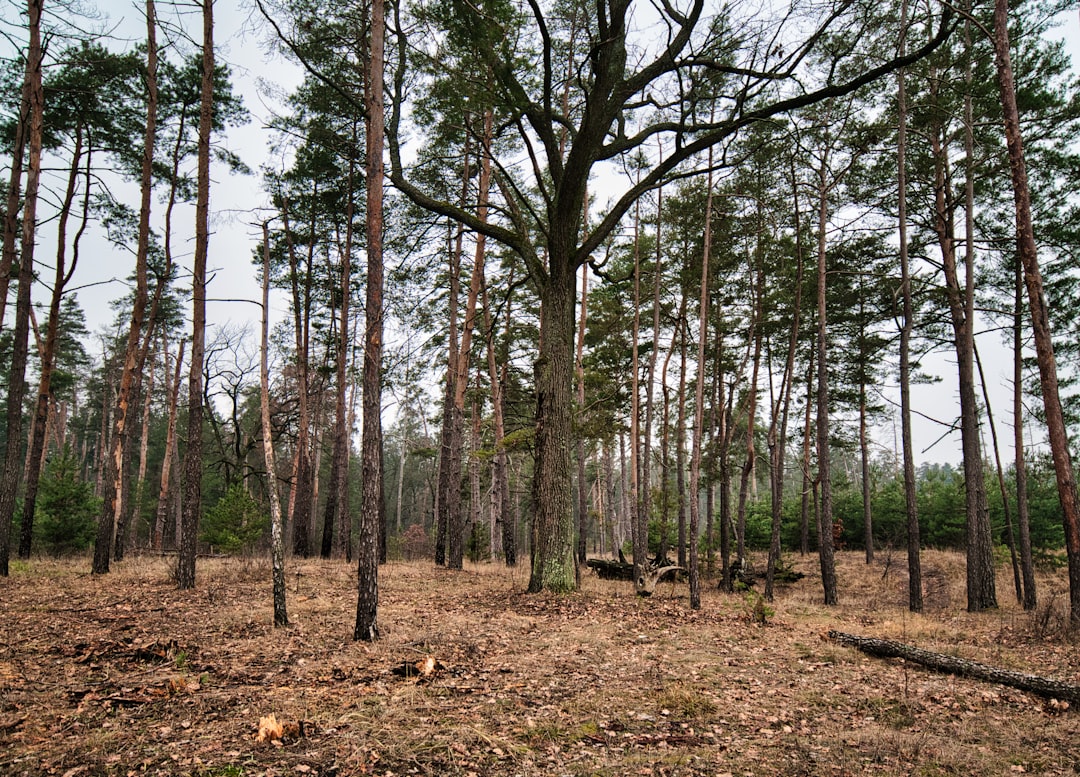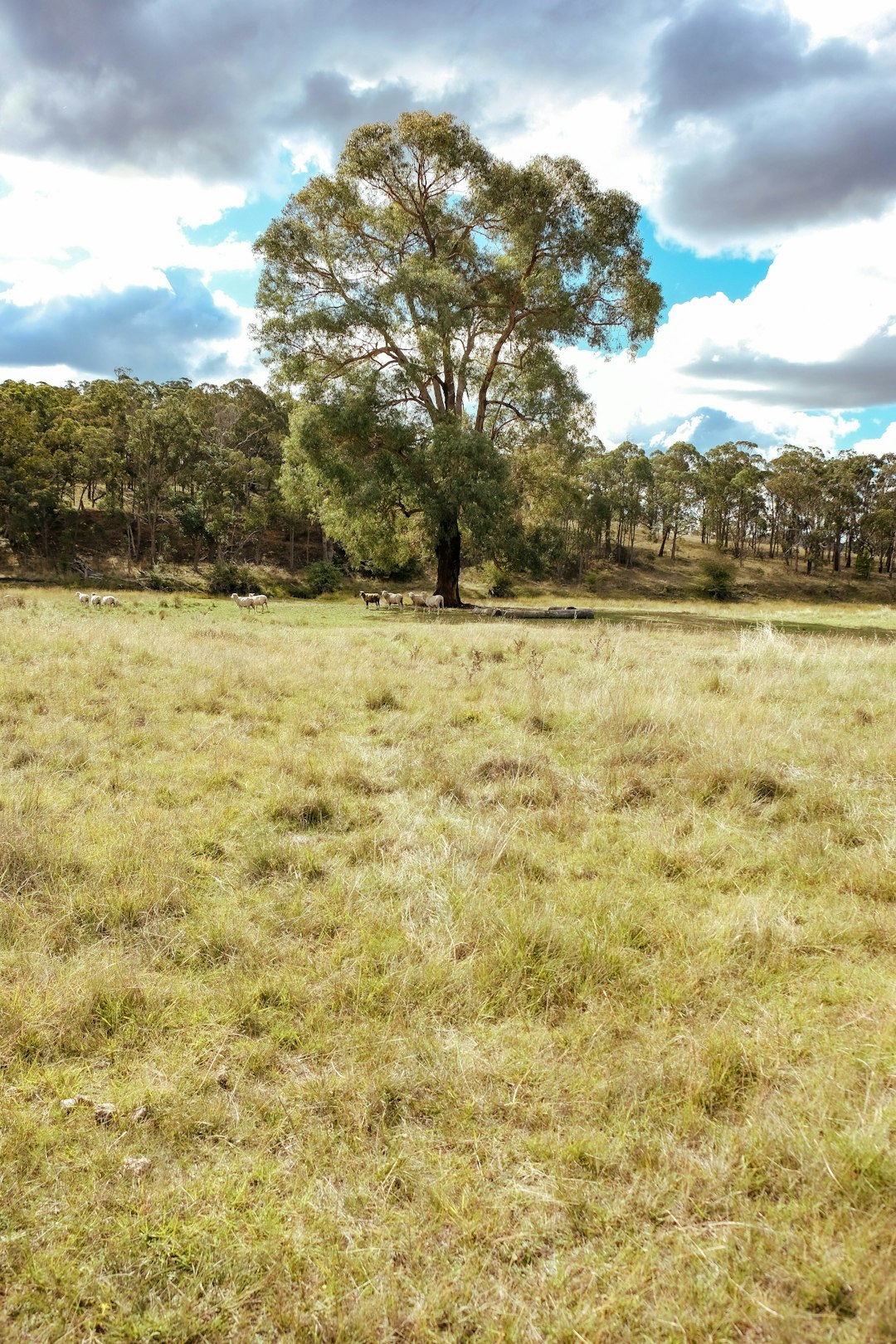

One effective way to advertise and promote land for sale is through online listings. Websites dedicated to real estate listings, such as Zillow or Realtor.com, allow sellers to showcase their land with photos, descriptions, and contact information.
Social media platforms provide another avenue for promoting land for sale. Posting on Facebook, Instagram, or LinkedIn can reach a wide audience and attract potential buyers who may not be actively searching for properties but are interested in investing in land.
Utilizing signage on the property itself is a traditional yet effective method of advertising land for sale. Placing a "For Sale" sign at the entrance or along the road can catch the eye of passersby and generate interest from local buyers.
Hosting open houses or property tours can give potential buyers an up-close look at the land and its features. This interactive approach allows sellers to engage directly with interested parties and answer any questions they may have about the property.
Collaborating with real estate agents or brokers can also help in promoting land for sale. These professionals have access to a network of clients and industry connections that can help market the property effectively and facilitate the sales process.
Lastly, advertising in local newspapers or magazines can target a specific audience within a certain geographic area. Print ads can highlight key selling points of the land and provide contact information for interested buyers to inquire further about the property.
When it comes to selling land, negotiating the best deal is crucial. Here are some tips to help you get the most out of your sale:
Know Your Property's Value: Before entering negotiations, it's important to have a clear understanding of your land's market value. Research comparable sales in the area and consider hiring a professional appraiser to provide an accurate valuation. Knowing your property's value will give you leverage during negotiations.
Highlight Unique Features: One way to stand out in negotiations is to highlight any unique features or potential uses for your land. Whether it's a prime location, natural resources, or development opportunities, showcasing these aspects can help attract buyers and increase the value of your property.
Be Flexible: Flexibility is key when negotiating a deal for selling land. Consider factors such as payment terms, closing dates, and contingencies that may be important to potential buyers. Being open to compromise can help facilitate smoother negotiations and reach a mutually beneficial agreement.
Seek Professional Guidance: Navigating the complexities of selling land can be challenging, so seeking guidance from real estate professionals such as agents or attorneys can be beneficial. These experts can provide valuable insights, assist with negotiations, and ensure that all legal aspects of the transaction are handled properly.
By following these tips and being prepared for negotiations, you can increase your chances of securing the best deal when selling your land.

Selling land can be a complex process that involves several steps in order to ensure a successful transaction.. Whether you are selling a small plot of land or a large parcel, there are certain key steps that need to be followed in order to sell your land smoothly. The first step in selling land is to determine the market value of your property.
Posted by on 2024-09-30

When it comes to selling your land, determining its value is a crucial step in the process.. The value of your land can be influenced by a variety of factors, including location, size, zoning restrictions, and market conditions. One important factor to consider when determining the value of your land is its location.
Posted by on 2024-09-20

Unlocking the potential of your land and maximizing your profits is a goal that many landowners aspire to achieve.. Whether you own a small plot of land or a large estate, there are several key strategies that can help you make the most of your property. First and foremost, it's important to assess the current state of your land and identify any areas that have untapped potential.
Posted by on 2024-09-20

Are you looking to sell your land quickly and for top dollar? If so, you've come to the right place. In this essay, we will explore some key secrets to successfully selling your land in a timely manner and maximizing your profits. One of the first steps in selling your land is to properly prepare it for sale. This includes clearing any debris or unwanted structures, as well as making any necessary repairs or improvements.
Posted by on 2024-09-20
When it comes to selling land, a real estate agent plays a crucial role in the process. Their expertise and knowledge are invaluable in helping sellers navigate the complexities of selling land and maximizing their profits.
Aid in Pricing Strategy: Real estate agents have access to market data and trends that allow them to accurately assess the value of the land being sold. They can help sellers determine a competitive price that will attract buyers while also ensuring that the seller receives fair compensation for their property.
Marketing and Promotion: Real estate agents have a wide network of contacts and resources that they can leverage to market and promote the land for sale. From listing the property on multiple platforms to organizing open houses, agents use their marketing skills to reach potential buyers and generate interest in the property.
Negotiation Skills: One of the most important roles of a real estate agent is negotiating on behalf of the seller. Agents are trained in negotiation tactics and can advocate for their clients' best interests during price discussions with potential buyers. This ensures that sellers receive offers that reflect the true value of their land.
Handling Legalities: Selling land involves numerous legalities and paperwork that can be overwhelming for those not familiar with real estate transactions. Real estate agents are well-versed in these legal requirements and can guide sellers through the process, ensuring all necessary documents are completed accurately and on time. Their expertise helps prevent any legal issues or complications down the line, giving sellers peace of mind throughout the sale process.


When selling land, it is crucial to conduct a title search to ensure a smooth and successful transaction. A title search involves examining public records to determine the history of ownership of the property in question. Here are six reasons why conducting a title search before selling land is important:
Identify Ownership Issues: One of the main reasons to conduct a title search is to identify any ownership issues that may exist with the property. This can include errors in public records, undisclosed heirs or liens on the property. By uncovering these issues early on, you can address them before they become a problem during the sale process.
Verify Legal Ownership: A title search helps verify legal ownership of the land being sold. It ensures that the seller has the legal right to transfer ownership of the property and that there are no competing claims from other parties. This verification is essential for establishing clear and marketable title.
Clear Title: Having a clear title means that there are no outstanding claims or issues that could affect the sale of the land. Conducting a title search helps ensure that there are no clouds on the title, such as unpaid taxes or unresolved disputes, which could delay or prevent the sale from going through.
Prevent Future Disputes: By conducting a thorough title search before selling land, you can prevent future disputes over ownership rights. Knowing who has legal claim to the property can help avoid costly litigation down the line and provide peace of mind for both buyers and sellers.
Obtain Title Insurance: Title insurance protects both buyers and sellers from financial loss due to defects in the title of a property. To obtain this insurance, a thorough title search must be conducted to identify any potential risks associated with transferring ownership. Having clear title insurance can provide added security throughout the sales process.
Ensure Smooth Transaction: Ultimately, conducting a title search before selling land helps ensure a smooth transaction for all parties involved. By addressing any potential issues upfront, you can minimize delays and complications during closing and facilitate a successful sale of the property.
In conclusion, conducting a title search before selling land is an essential step in protecting your investment and ensuring a seamless transfer of ownership. By identifying ownership issues, verifying legal ownership, obtaining clear title insurance, and preventing future disputes, you can make sure that your land sale proceeds without any hitches or surprises.
When it comes to selling land, there are key differences between selling raw land and developed land that sellers should be aware of. These differences can impact the selling process, pricing, and potential buyers.
Value Raw land typically has a lower value compared to developed land due to the lack of infrastructure, amenities, and utilities. Developed land, on the other hand, usually commands a higher price because it is ready for immediate use or construction.
Potential Buyers The pool of potential buyers for raw land is often smaller since it requires more time, effort, and investment to develop. Developed land attracts a wider range of buyers including developers, investors, and individuals looking for move-in ready properties.
Market Demand The demand for raw land may fluctuate depending on factors such as location, zoning regulations, and market trends. In contrast, there is generally more consistent demand for developed land as it offers immediate benefits and convenience.
Development Costs Selling raw land may involve additional costs such as obtaining permits, conducting feasibility studies, installing utilities, and preparing the site for development. Developed land typically has lower development costs since infrastructure and amenities are already in place.
Timing The selling process for raw land can be longer compared to developed land due to the need for approvals, planning, and site preparation. Developed land can be sold more quickly since it is ready for use or construction.
Marketing Strategies Different marketing strategies may be required when selling raw land versus developed land. For raw land, highlighting potential uses and investment opportunities may attract interested buyers. When selling developed land, showcasing existing amenities and features can help attract potential buyers who are looking for move-in ready properties.
Risk Factors There are different risk factors associated with selling raw versus developed land. Raw land carries risks such as zoning changes or environmental issues that could affect its value or development potential. Developed land may have risks related to maintenance costs or property management issues that could impact its marketability.


First, it is crucial to conduct thorough research on the current market trends and pricing in your area. This will help you determine a competitive price for your land and identify potential buyers who may be interested in purchasing it.
Next, consider investing in professional photography and virtual tours of your land to showcase its best features. High-quality visuals can attract more attention from potential buyers and make your listing stand out from the competition.
Additionally, leverage online platforms such as real estate websites, social media, and online classifieds to reach a wider audience. Utilize targeted advertising to specifically target individuals or organizations who may be interested in purchasing land in your area.
Finally, consider collaborating with a real estate agent or land broker who has experience selling properties similar to yours. They can provide valuable insights, handle negotiations on your behalf, and help facilitate a smooth transaction process. By following these steps, you can effectively market and sell your land to the right buyer at the right price.
Researching Comparable Sales One way to determine the value of your land before selling is by researching comparable sales in your area. Look for recently sold properties that are similar to yours in terms of size, location, and amenities. This will give you a good idea of what similar properties are selling for in the current market.
Consulting with a Real Estate Agent Another option is to consult with a real estate agent who has experience selling land in your area. They can provide you with valuable insights into the local market and help you determine a realistic asking price for your land. A real estate agent can also assist with marketing your property and negotiating with potential buyers.
Assessing the Land's Features When determining the value of your land, it's important to consider its unique features and potential uses. Factors such as zoning restrictions, access to utilities, proximity to amenities, and topography can all impact the value of your land. Be sure to highlight any desirable features when listing your property for sale.
Getting a Professional Appraisal For a more accurate assessment of your land's value, consider getting a professional appraisal done by a qualified appraiser. An appraiser will take into account various factors such as market trends, comparable sales data, and the condition of the land itself to provide you with an unbiased estimate of its worth.
Monitoring Market Trends Lastly, keep an eye on market trends and fluctuations in property values in your area. By staying informed about changes in the real estate market, you can better gauge when it might be an opportune time to sell your land for maximum profit. Stay proactive and flexible in adjusting your pricing strategy based on current market conditions.

Zoning laws affect what you can and cannot do with your property. Understanding zoning regulations ensures that you can use the land in a way that aligns with your intentions and avoids legal issues or fines.
Conduct a thorough title search to ensure the land is free from liens or legal disputes. This step may require hiring a real estate attorney or title company to verify ownership history and resolve any outstanding issues.
A knowledgeable agent is familiar with local zoning laws, building codes, environmental restrictions, and can assess how these factors impact current use and future development possibilities.